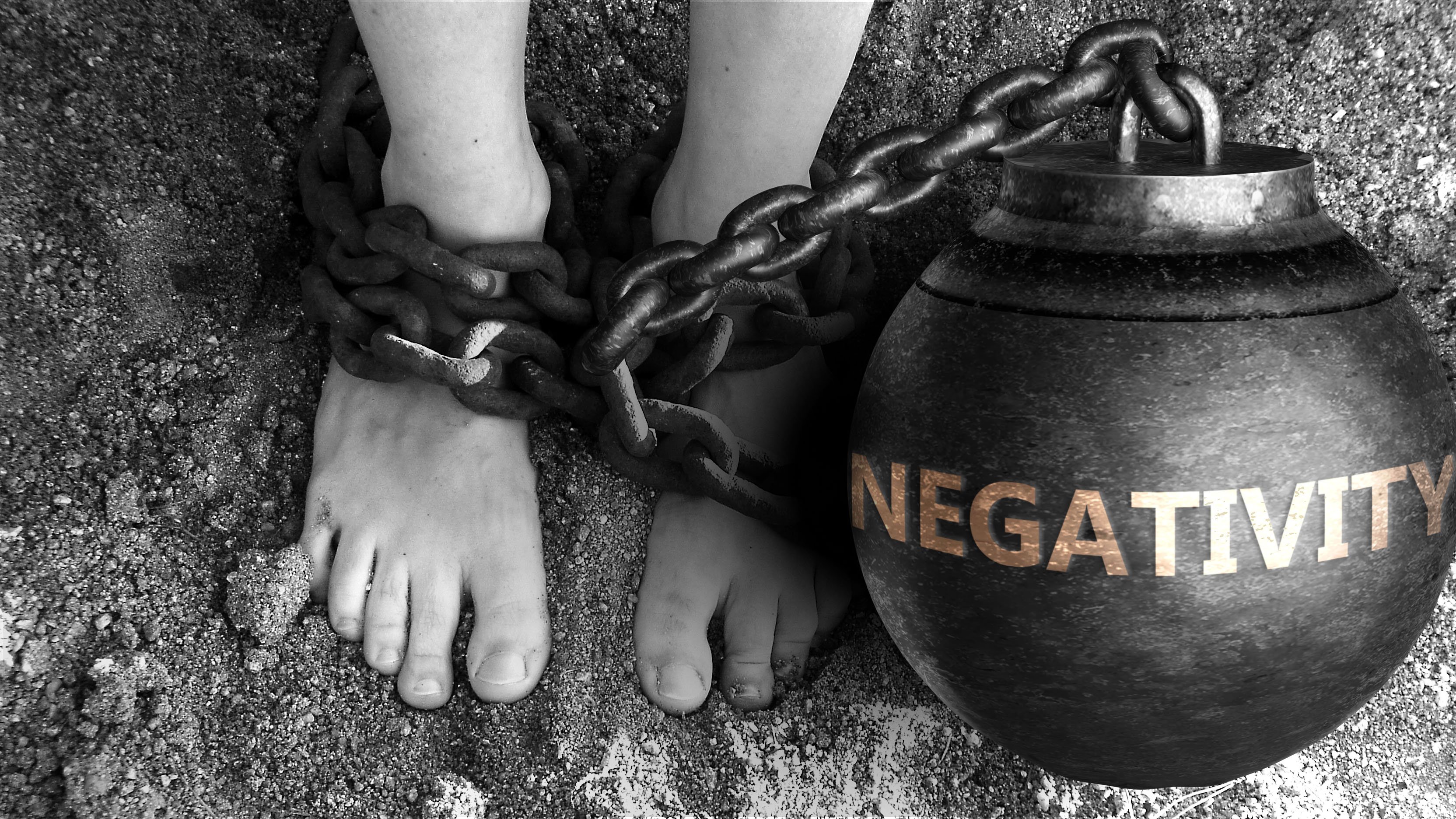
Negativity is a normal part of life. We feel negative emotions as reactions to certain events or circumstances, but they sometimes become an overwhelming or chronic issue. When negative emotions become chronic, they can have lasting effects on your health. With about 12 million Americans reporting dissatisfaction with life, it’s important to have the right strategies to manage negative emotions.
About Negativity
Emotions and thoughts rule our lives. Studies show that, throughout everyday life, people experience at least one emotion 90% of the time. While most people experience positive emotions such as joy or gratitude 2.5 times more often than negative emotions, sometimes negative emotions can become so common as to disrupt our daily lives.
Negative emotions appear in a variety of environments and circumstances. They are often related to achievements and outcomes, although they may also arise in response to social contexts.
Examples of Negative Emotions
Negativity sometimes appears as embarrassment in social settings. It may also look like frustration in response to a problem at work or school, or boredom throughout the day.
Common negative emotions include:
- Boredom
- Guilt
- Hopelessness
- Shame
- Sadness
- Anger
- Fear
- Frustration
- Anxiety
- Embarrassment
- Resentment
- Jealousy
How does negativity affect health and well-being?
Negativity is a daily occurrence for most people. According to some studies, negativity and negative emotions are a factor in learning and achievement. But what happens when we feel too much negativity? Chronic negativity may affect your well-being.
Physical well-being
Too much negativity can have lasting physical effects. Negativity can be so overwhelming as to create chronic stress, which can cause premature ageing and a reduced life span. Chronic stress may also negatively affect the body’s hormones and immune system. Unmanaged negative emotions like anger are also linked to health conditions such as high blood pressure, cardiovascular disease, digestive disorders, and infection.
Emotional well-being
Negative emotions may arise in response to a poor test result in school, for example, and result in increased motivation to study. When negative emotions become too prevalent, however, this may have the opposite effect and instead demoralize an individual from studying.
Negativity and chronic stress are also linked to mood disorders and emotional distress. Many people experience depression, anxiety, and addiction as a consequence of chronic stress.
Tips to Better Manage Negativity
The absence of negativity doesn’t necessarily create increased positivity. Instead, it’s important to better manage negative feelings so that you can experience more positive emotions. Emotional vitality and agility, which are a result of practicing balanced emotions, can lead to better physical and emotional well-being. There are a few ways that you can practice to better manage negativity in your life.
Practice mindfulness
It may be helpful to take a closer look at your lifestyle if you’re feeling overwhelming negativity. Maybe you’ve been dealing with struggles at work or changes at home. Pay attention to when you feel heightened emotions and the signals that your body sends you. Identify the underlying causes and try to better understand them so that you can better process and respond to your circumstances.
Focus on what you can control
While it’s important to acknowledge your feelings, ruminating on negative emotions doesn’t usually help people feel better and often reinforces stress. When faced with a situation that causes you to feel negativity, let the negative experience happen but keep in mind what you can and can’t control about the situation. If somebody mistreats you, for example, you may feel upset but should also consider whether you can do something to resolve the dynamic or if you’re better off distancing yourself. You might find that negativity fades more easily when you let go of things that you can’t control.
Find a healthy outlet
Managing negativity sometimes means channeling negative experiences into positive outlets. Exercise is shown to increase emotional well-being, as is meditation. Some people also find benefit in yoga and other movement therapies that focus on breathing and mental clarity.
Practice self-acceptance
Negative emotions, like fear, embarrassment, or shame, often arise from when we are unkind or unaccepting of ourselves. Regardless of whether you’re feeling these emotions acutely or not, focus on creating positive affirmations that promote a positive view of yourself.
Seek support
Friends, family, and other members of your social circle can help you to manage negativity. Studies show that people with close relationships often enjoy a higher degree of emotional support, helping them to better respond to stress and negativity.
Practice gratitude
Some research suggests that practicing gratitude can promote positive emotions. Whether it be in a daily journal or another means, acknowledging the things that you are grateful for instead of the things that bother you can lead to increased positive feelings and improve physical well-being.
While all of these practices can, with persistence, help increase the presence of positive emotions in our lives, there are serious conditions that can overwhelm us and not respond to even the most diligent self-care.
Ketamine Clinics Los Angeles is here to help with a highly effective alternative treatment option that relieves negative mental health challenges in 83% of patients. KCLA offers free consultations to those who are interested in finding out if ketamine treatments are suited for them. These ketamine infusions seek to target many conditions associated with negativity such as anxiety and depression, in a safe and comforting environment provided by the leading provider of all ketamine clinics.
From ketamine for anxiety, ketamine treatments for depression, and more specific treatments for suicidal ideation, our ketamine infusion therapy sessions can combat negative thoughts, and provide a basis for overall better mental health. Negativity is a burden, and Ketamine Clinics Los Angeles is centered upon relieving that unwanted stress, so you can be the best possible you.
Learn more about how our ketamine infusion treatments work, and discover which specific treatment is geared for your needs. You can also contact KCLA for any questions and comments, or to schedule a free phone consultation.

